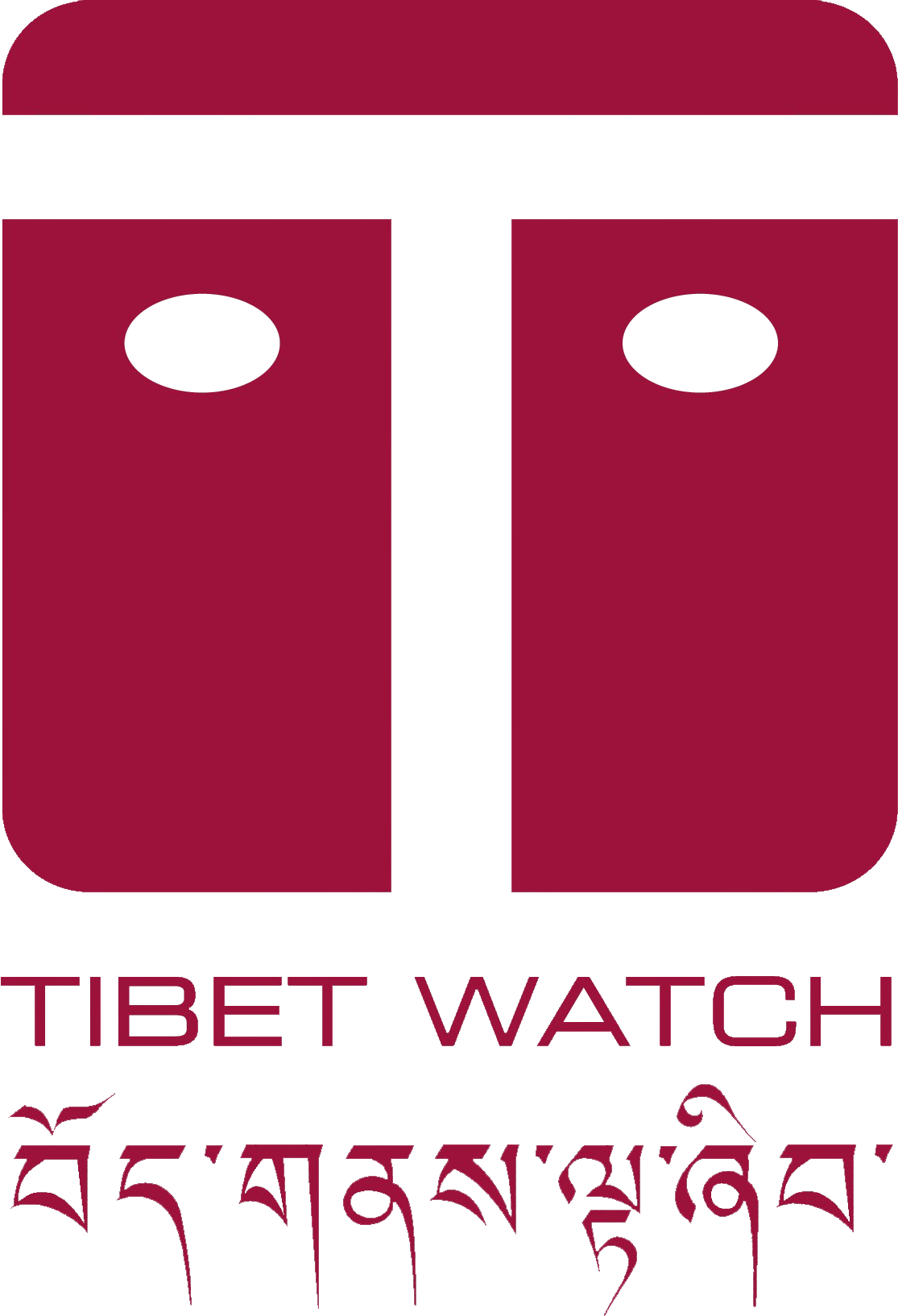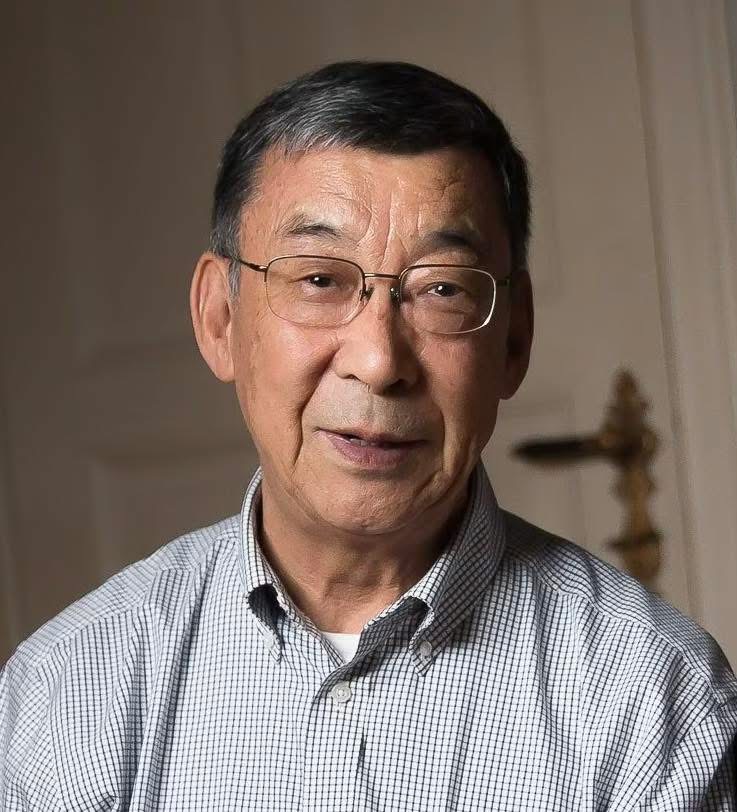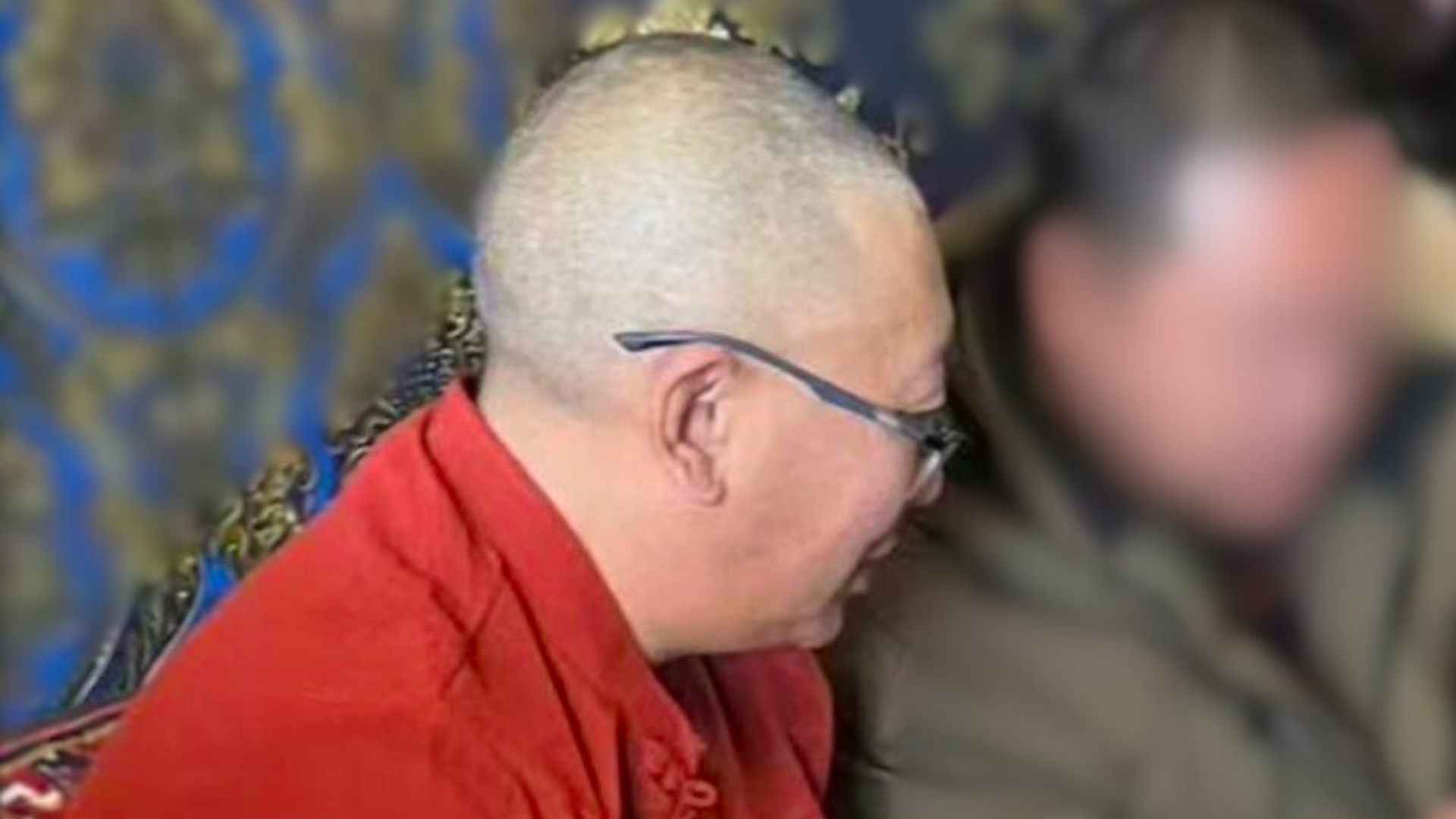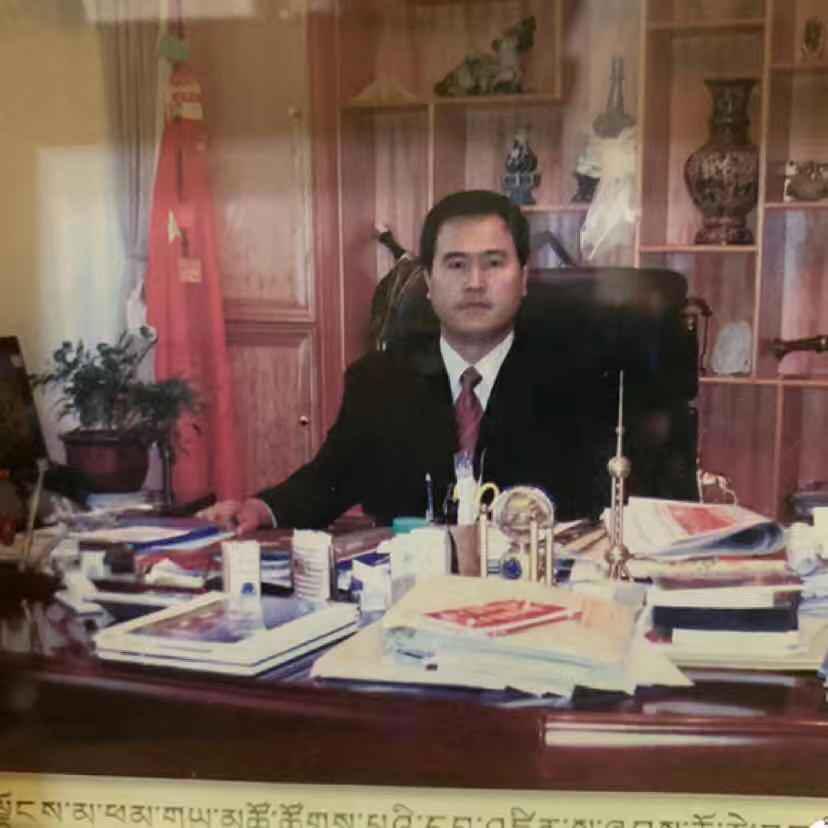
Tourists granted twice the access time over local Tibetans at the historical Jokhang Temple during the holiest month of the year
On 17 May 2021, the Central Committee of the Communist party of Jokhang Temple, also known as Tsuklagkhang, issued a notice which permits only three and a half hours for local Tibetans to make offerings and prayers, against seven and a half hours for tourists who are, in general, predominantly Chinese. The notice, which will take into effect today on 19 May, China’s National Tourism Day, issues separate discriminatory opening times; for local Tibetans between 8 AM to 11:30 AM and tourists between 12 PM to 7:30 PM.
According to the Tibetan Lunar calendar, the fourth month, Saga Dawa, is the holiest month of the year as its fifteenth and full moon day is when Buddha was born, attained enlightenment, and passed away. Tibetans traditionally observe this month by visiting monasteries, temples and going on pilgrimages more frequently.
This announcement granting tourists twice the time over local Tibetans follows earlier restrictions on local Tibetans in March that restricted Tibetans making the kora (clockwise circumambulation) to groups of three and a recent notice by Lhasa City Buddhist Association on 9 May encouraging Tibetans to not go for kora around the Potala Palace, Jokhang Temple and other holy pilgrimage sites in Lhasa.
Despite these measures being framed as a precaution to prevent and control the spread of new variants of coronavirus, they appear to be linked to a wider effort by the Chinese Communist Party to restrict Tibetan Buddhism. On 26 April, the so-called Tibet Autonomous Region announced seven “red-tourism” routes as a part of China’s nation-wide “Party history” propaganda initiative, launched in February, to rewrite, glorify and cement the Chinese Communist Party’s state narrative ahead of the upcoming centenary anniversary. The first of the seven routes will be launched on 19 May. In Tibet, this year will also mark the 70th anniversary of the beginning of the People’s Liberation Army’s occupation of Tibet.
The discriminatory practice is implemented against the backdrop of Tibetan children not being allowed to visit monasteries since 2019, forced calligraphy contests in Tibetan monasteries in Lhasa on 30 April, and a recent notice prohibiting Tibetan parents from carrying everyday religious accessories like rosaries and prayer wheels in and around schools in Sog County in central Tibet. Chinese authorities are intentionally and systematically attempting to break the connection between Tibet’s religious heritage from the younger generation and reduce the influence of Tibetan Buddhism.
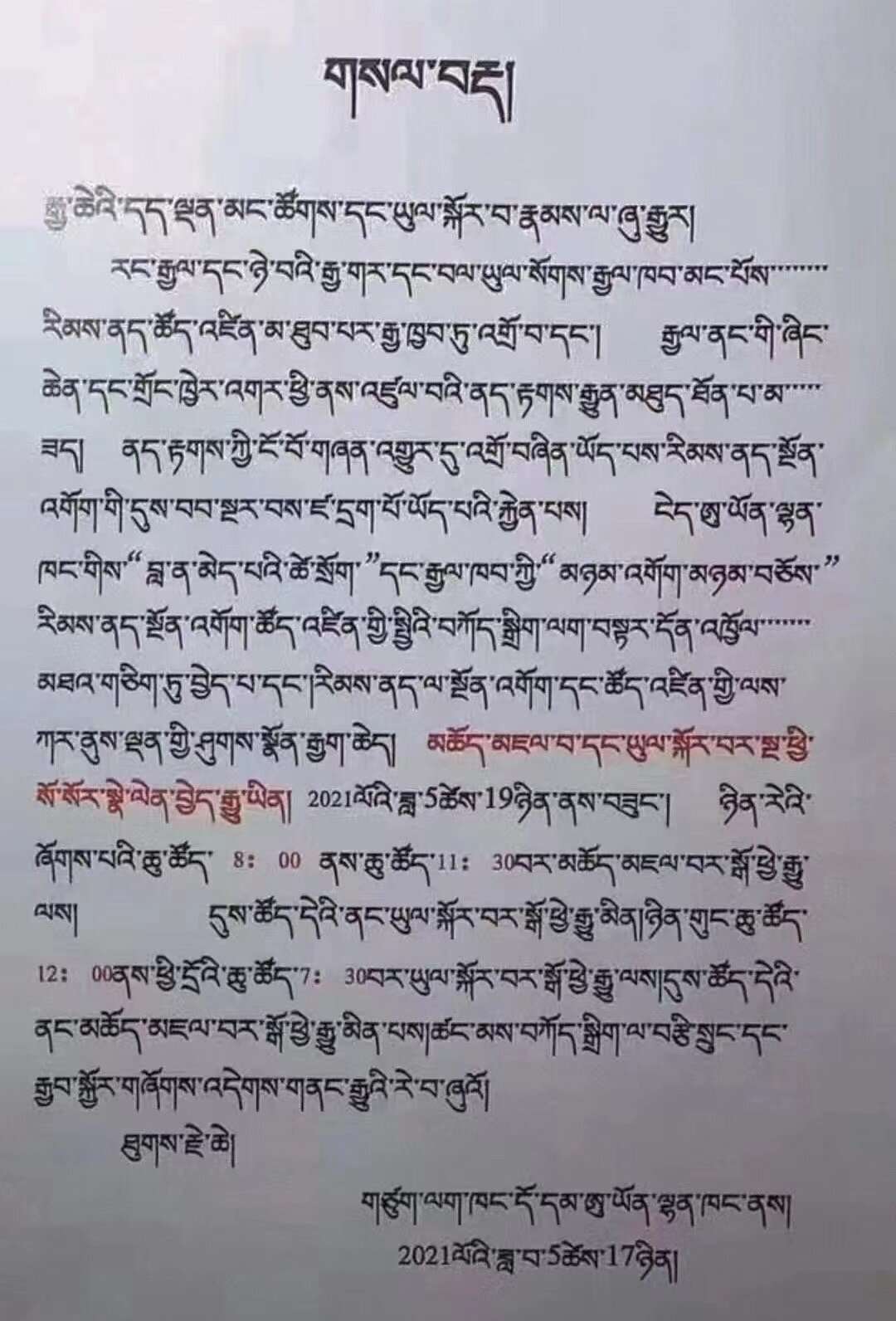
Public notice with new discriminatory opening schedule for pilgrims and tourists
